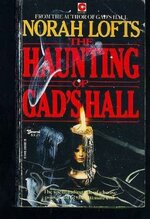Paul Whybrow
Full Member
I recently received my 38th rejection from the batch of 60 queries I made last November—yet again, it was from someone, presumably an assistant, whose name doesn't appear on the literary agency website.
I'm bulletproof, so it didn't bother me, but all the same I was heartened to read advice from a couple of publishing industry professionals in these two articles:
Eight reasons that even a good book is rejected by publishers
Every Writer Needs an Editor, Especially if that Writer Is Also an Editor
I will endeavour to persevere, though I'm trying a different approach to raise my profile by entering as many competitions as I can afford.
As 20th-century Canadian surrealist painter, Mimi Parent advised:
Knock hard, life is deaf.
I'm bulletproof, so it didn't bother me, but all the same I was heartened to read advice from a couple of publishing industry professionals in these two articles:
Eight reasons that even a good book is rejected by publishers
Every Writer Needs an Editor, Especially if that Writer Is Also an Editor
I will endeavour to persevere, though I'm trying a different approach to raise my profile by entering as many competitions as I can afford.
As 20th-century Canadian surrealist painter, Mimi Parent advised:
Knock hard, life is deaf.

